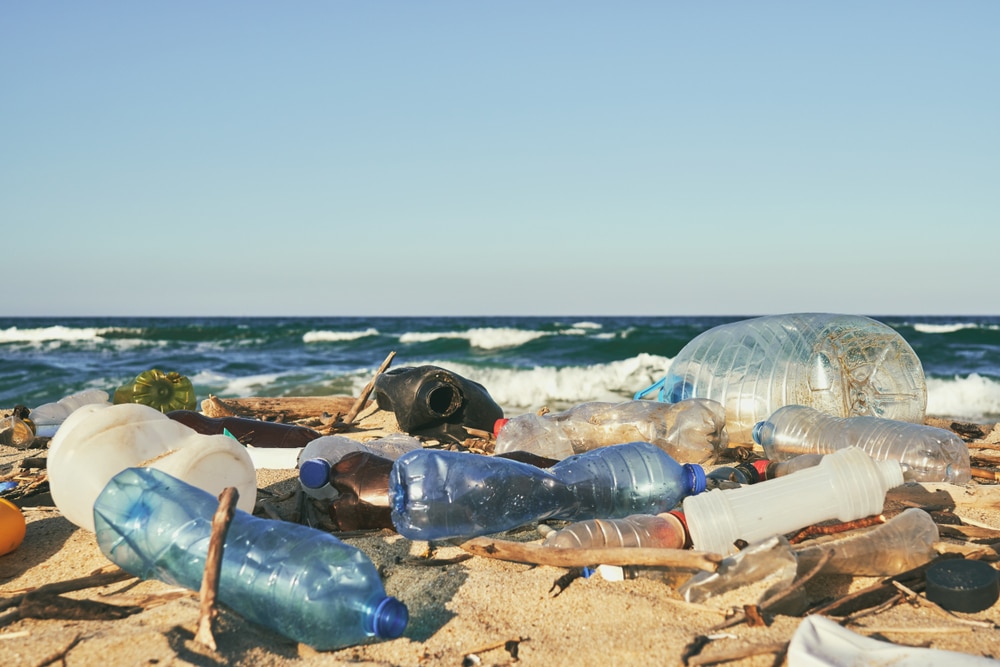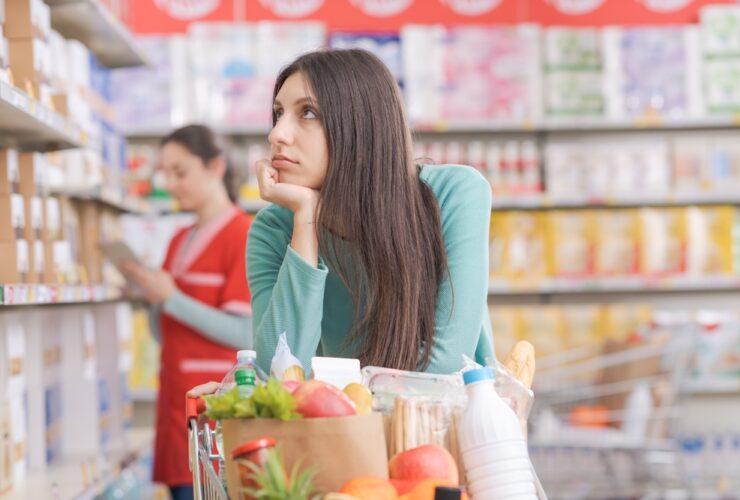By Kirsty Yull
The story of plastic
Since its creation in the late 1800s, plastic has played a central role in innovative packaging solutions. In the food and beverage industry, it has extended shelf life and protected goods from damage, vastly reducing food waste.
But despite the many benefits of plastic, the waste it creates is out of control. To date, an estimated 8.3 billion tonnes of plastic have been produced globally, but only 9% of this has been recycled, with the remainder ending up in landfill or the environment, vividly shown in Sir David Attenborough’s Blue Planet 2 last year.
Much of the packaging currently produced is either non-recyclable (e.g. single-use plastics) or difficult to recycle, with Which? finding nearly a third of packaging used in supermarkets in one of these categories. Also, we are not recycling as much as we should be. In 2015, of the 1.5 million tonnes of recyclable plastic waste used by consumers, only 500,000 tonnes were recycled.
The plan
In January 2018, UK Prime Minister Theresa May launched a 25 Year Plan to eliminate all avoidable plastic waste by 2042 and is exploring changes to the tax system to address the problem. The effectiveness of economic incentives was demonstrated in 2015 by the introduction of the 5p plastic bag charge, which has reduced their use by over 80%.
Furthermore, the Environment Secretary, Michael Gove is reportedly set to unveil plans for deposit return schemes to reduce littering and increase recycling.
Retailer responsibility
Leading UK supermarkets produce more than 800,000 tonnes of plastic packaging waste annually and more than a third of food sold in the EU is packaged in plastic. In a recent survey, over a quarter (27%) of respondents said the responsibility for reducing plastic packaging was with companies that produce packaged goods, whereas 13% said it was with companies that sell packaged goods.
Currently, companies creating packaging waste are obliged to buy a Packaging Recovery Note (PRN), which effectively constitutes a tax. As part of the 25 Year Plan, the government is reported to be increasing the cost of PRNs for businesses that package their goods in unrecyclable plastic.
Numerous major supermarkets, including Walmart and Tesco, have pledged to reduce the amount of plastic packaging they use. British supermarket, Iceland, has pledged to remove all plastics from its own brand packaging by 2023.
What do consumers think?
We conducted an online survey, asking 1,000 consumers (500 each in the UK and US) whether they supported a plastic tax. Overall, there was significant support for economic incentives, with over half of Brits (52%), and a third (33%) of Americans in favour of a tax.
Last week, the UK Treasury revealed it had received an overwhelming public response to a consultation on the use of taxes to tackle plastic waste and promote recycling. It received 162,000 responses, with the vast majority saying they would back a tax on single-use plastic items.
However, there are doubts about whether this would be enough to encourage people to change their ‘throw-away’ habits. There are also concerns over food costs and profits, with alternatives to single-use plastics estimated to be up to 400% more expensive.
Going plastic-free?
The 25 Year Plan aims to work with supermarkets to introduce plastic-free aisles. UK campaign group, A Plastic Planet, launched the ‘A Plastic Free Aisle’ campaign last year, launching the world’s first plastic free aisle in Amsterdam in February 2018.
We asked consumers if they were more or less likely to shop at stores selling fruit and vegetables without plastic packaging. Many consumers in the UK (41%) and US (38%) said it would make them more likely. A small number of UK consumers said this would make them less likely (3%), with a higher number of consumers saying the same in the US (13%).
However, there are concerns about stopping using plastic altogether. Chief Executive of the British Packaging Federation, Dick Searle, said “Food costs are going to increase” in response to the complete removal of plastic in packaging.
There is also the issue of shelf life and food waste. Putting grapes in individual plastic boxes has been found to cut their waste by 75%. According to anti-waste charity Wrap, extension of shelf life of produce by just a day in the UK would save shoppers up to £500 million per year.
Given the unfeasibility of a total ban any time soon, it may be better to make more plastics biodegradable or recyclable. Clearly there is a problem that requires significant innovation, and that can’t be solved without industry expertise.


